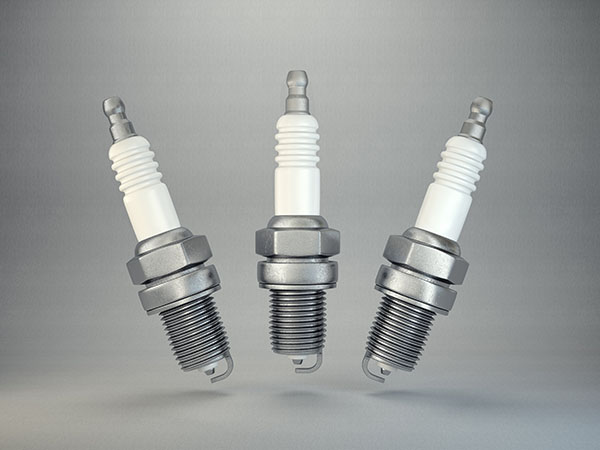
Ever wonder what keeps your engine running smoothly under the hood? Spark plugs play a pivotal role in your vehicle's powertrain, igniting the fuel-air mixture that powers your engine. But not all spark plugs are created equal - keep on reading to find out why that is!
Spark Plug Basics
Spark plugs are the heartbeats of engines, creating the necessary spark to ignite the fuel-air mixture in the combustion chamber. However, the effectiveness of this small yet crucial component depends on its type, material, and compatibility with the engine.
Different Types of Spark Plugs Explained
Copper Spark Plugs
These are the most basic type, featuring a solid copper core with a nickel alloy coating. Their main advantage is superior thermal conductivity, which allows them to operate at a wider range of temperatures, making them ideal for older vehicles with low-voltage ignition systems. However, they tend to have a shorter lifespan compared to platinum and iridium plugs.
Platinum Spark Plugs
Platinum spark plugs have a platinum disc welded to the tip of the center electrode. They are more resistant to wear and erosion than copper spark plugs, offering better longevity and a stable spark. They are well-suited for modern engines with electronic distributor-based ignition systems (DIS).
There are two types: single platinum, which has one platinum tip, and double platinum, which has platinum on both the center and ground electrodes, making them even more durable and efficient.
Iridium Spark Plugs
Iridium spark plugs feature an iridium alloy tip, which is much harder and more durable than platinum. They offer the best performance, longevity, and fuel efficiency. Iridium's high melting point allows for the tip size to be much smaller, which improves ignitability and contributes to optimum combustion. These are ideal for high-performance engines, modern vehicles that demand efficient combustion, and those with coil-on-plug ignition systems.
Matching Spark Plugs to Engine Types
For Older, Low-Performance Engines
Copper spark plugs are recommended due to their superior thermal conductivity and affordability. These engines typically don't require the high ignition voltages that modern engines do, making copper an adequate choice.
For Modern, Everyday Vehicles
Platinum spark plugs are a great middle ground. They offer good longevity and performance, which suits the majority of modern vehicles with electronic ignition systems. Single platinum plugs are adequate for vehicles with a single coil ignition system, while double platinum plugs are beneficial for waste spark ignition systems, where each spark plug fires twice as often.
For High-Performance and Latest Model Engines
Iridium spark plugs are the best choice. Their superior materials and construction support the high energy demands of high-performance engines and ensure the cleanest and most efficient combustion. This results in improved acceleration, better fuel efficiency, and the longest lifespan among spark plug types.
The Importance of Heat Range in Spark Plugs
The heat range of a spark plug indicates its ability to dissipate heat from the combustion chamber. Choosing a spark plug with the correct heat range is vital to prevent engine knock or pre-ignition, which can lead to engine damage. This is the main reason behind the difference in use cases of each type.
Need a spark plug change or a tune-up? Don't worry! Just call us at Integrity Auto Services, and we will be glad to help out and get you on the road ASAP.